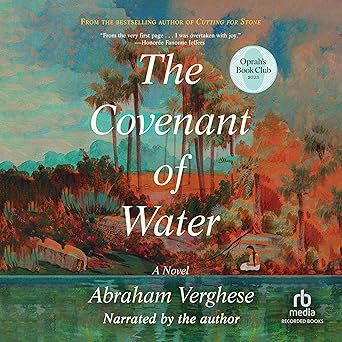
In the lush landscapes of Kerala, South India, a mysterious affliction afflicts a long line of a family, where each generation loses a loved one to drowning. The story begins in 1900, where a young girl from the Christian community is sent by boat to her wedding, marking the beginning of a life that will be filled with love, hardship and loss. She would later become Big Ammachi, a woman who would witness the passage of time and undergo unthinkable changes. Spanning over 70 years, Big Ammachi's life is one of joy and triumph as well as hardship and loss, her faith and love the only constants.
As we follow Big Ammachi's extraordinary life, we are transported to the long-existing Christian community's daily struggles and cherished traditions. We meet the next generations of her family, including her son and grandson, who are affected by the mysterious curse that has haunted their family for years. Through their stories, we are taught about the difficulties faced by past generations to ensure a better life for their loved ones. The story is a masterful exploration of love, faith, and medicine, as we see how the scientific theories of the time transformed the medical practices. The author also explores the passage of time, which brings out a sense of the longing for tradition and the acceptance of change.
The Covenant of Water, written by Abraham Verghese, is an unforgettable novel that transports us to the Malabar Coast of Kerala, South India, at the turn of the century. As we lose ourselves in the lives of the characters, we are reminded of the sacrifices made by the past generations to secure the well-being and future of their loved ones. We are struck by the vivid and powerful description of the landscape and its people, and the timeless themes of love, faith and family that run throughout the novel, all in a beautifully written and deeply moving narrative. The author's tribute to the deceased family members, lost to a seemingly inexplicable rule of fate, resonates deeply.
As I read this captivating novel, I couldn't help but think of my own grandmother, who used to tell me stories about her family's struggles and traditions. The way the author weaves together the lives of the characters, spanning multiple generations, is truly remarkable. The story takes us on a journey to the lush landscapes of Kerala, South India, where a mysterious affliction has haunted a long line of families for years.
The author's writing is vivid and powerful, transporting us to the Malabar Coast of Kerala at the turn of the century. We meet Big Ammachi, a young girl who lives a life filled with love, hardship, and loss, and her story is a testament to the strength and resilience of women in the face of adversity. As we follow Big Ammachi's life, we see how the scientific theories of the time transform the medical practices, and we learn about the difficulties faced by past generations to ensure a better life for their loved ones. The author's exploration of love, faith, and medicine is masterful, and we are reminded of the sacrifices made by the past generations to secure the well-being and future of their loved ones.
What struck me most about this novel is the way the author captures the timeless themes of love, faith, and family that run throughout the narrative. The author's tribute to the deceased family members, lost to a seemingly inexplicable rule of fate, resonates deeply. The characters are multi-dimensional and relatable, and we can't help but feel a deep connection to their struggles and triumphs. The author's writing is beautiful and evocative, and the story is unforgettable. As I finished the book, I felt like I had lost a loved one, so profound was the impact of the author's storytelling. This is a truly unforgettable novel that will stay with me for a long time.
Rating: 4.5 / 5.0
The rating summary of The Covenant of Water is 4.5 out of 5 stars. The story is a masterful exploration of love, faith, and medicine, set against the backdrop of a long-standing family curse. The author's vivid and powerful description of the landscape and its people is reminiscent of the author's own grandmother's stories, transporting the reader to the lush landscapes of Kerala, South India. The characters are multi-dimensional and relatable, and the author's tribute to the deceased family members resonates deeply. The writing is beautiful and evocative, and the story is unforgettable, leaving the reader with a lasting impact. The only reason I didn't give it a full 5 stars is that the plot can be a bit predictable at times.